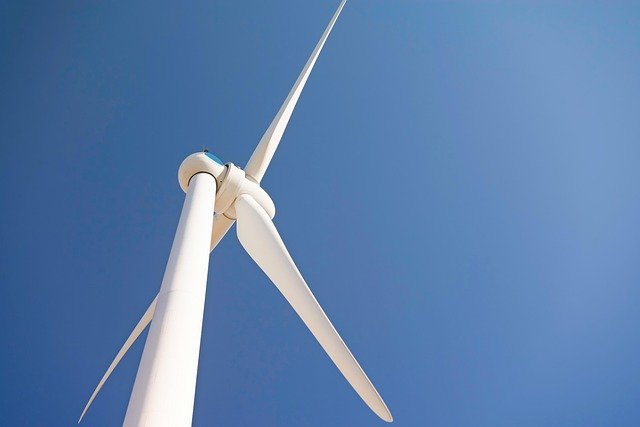Understanding Power Generators: A Comprehensive Guide to Energy Solutions
Power generators play a crucial role in providing electricity when traditional grid power is unavailable or unreliable. From emergency backup systems to off-grid living solutions, these devices offer a range of applications for both residential and commercial use. This article will explore various types of power generators, their functions, and the growing importance of solar-powered energy solutions in today's evolving energy landscape.

What are the different types of power generators?
Power generators come in various forms, each designed to meet specific energy needs and environmental considerations. The most common types include:
-
Fossil Fuel Generators: These traditional generators run on gasoline, diesel, or propane. They are widely used for their reliability and high power output but have environmental drawbacks due to emissions.
-
Solar Power Generators: Harnessing energy from the sun, these generators convert sunlight into electricity using photovoltaic cells. They are environmentally friendly and require minimal maintenance.
-
Wind Turbine Generators: These generators use wind power to produce electricity, making them ideal for areas with consistent wind patterns.
-
Hydroelectric Generators: Utilizing the power of flowing water, these generators are commonly used in large-scale power production but can also be implemented on a smaller scale for remote locations near water sources.
-
Biomass Generators: These generators convert organic matter into electricity through combustion or gasification processes, offering a renewable energy solution.
Understanding the strengths and limitations of each type is crucial in selecting the most appropriate power generation solution for specific needs and environments.
How do solar power generators work?
Solar power generators have gained significant popularity due to their eco-friendly nature and long-term cost-effectiveness. These systems typically consist of several key components:
-
Solar Panels: Photovoltaic cells within the panels absorb sunlight and convert it into direct current (DC) electricity.
-
Charge Controller: This device regulates the flow of electricity from the solar panels to the battery, preventing overcharging and extending battery life.
-
Battery: The generated electricity is stored in batteries for use when sunlight is not available.
-
Inverter: This component converts the stored DC electricity into alternating current (AC) electricity, which is used by most household appliances and electronics.
-
Output: The converted AC electricity is then available for use through standard electrical outlets.
Solar power generators offer a clean, renewable energy source that can be used in various settings, from remote cabins to urban homes seeking energy independence.
What are the benefits of using solar-powered energy solutions?
Solar-powered energy solutions offer numerous advantages over traditional power generation methods:
-
Environmental Impact: Solar power produces clean energy without harmful emissions, reducing carbon footprint and dependency on fossil fuels.
-
Cost Savings: While initial installation costs can be significant, solar systems often lead to long-term savings on electricity bills.
-
Energy Independence: Solar generators provide a degree of energy autonomy, reducing reliance on the power grid and offering protection against outages.
-
Low Maintenance: Solar systems have few moving parts, requiring minimal maintenance over their lifespan.
-
Versatility: Solar generators can be used in various settings, from small portable units for camping to large-scale installations for powering entire homes or businesses.
-
Government Incentives: Many regions offer tax credits or rebates for installing solar energy systems, further offsetting initial costs.
As technology advances and costs decrease, solar-powered energy solutions are becoming increasingly accessible and attractive for both residential and commercial applications.
How do you choose the right power generator for your needs?
Selecting the appropriate power generator depends on several factors:
-
Power Requirements: Calculate the total wattage needed to run essential appliances and devices simultaneously.
-
Fuel Type: Consider the availability and cost of fuel in your area, as well as environmental concerns.
-
Portability: Determine if you need a stationary or portable generator based on intended use.
-
Noise Level: Some generators can be quite loud, which may be a concern in residential areas or during outdoor activities.
-
Runtime: Consider how long the generator needs to operate between refueling or recharging.
-
Budget: Balance initial costs with long-term operational expenses and potential energy savings.
-
Maintenance: Evaluate the maintenance requirements and associated costs for different generator types.
-
Environmental Impact: Consider the carbon footprint and emissions of various generator options.
By carefully assessing these factors, you can choose a power generator that best meets your specific energy needs and aligns with your values and budget.
| Generator Type | Average Cost Range | Key Features |
|---|---|---|
| Portable Gas Generator | $300 - $1,500 | Affordable, widely available fuel, noisy operation |
| Standby Home Generator | $3,000 - $15,000 | Automatic operation, high power output, requires professional installation |
| Solar Generator | $500 - $5,000+ | Clean energy, low maintenance, silent operation, may require additional solar panels |
| Wind Turbine Generator | $4,000 - $20,000+ | Renewable energy, suitable for windy areas, requires significant space |
| Portable Solar Generator | $200 - $2,000 | Portable, clean energy, limited power output |
Prices, rates, or cost estimates mentioned in this article are based on the latest available information but may change over time. Independent research is advised before making financial decisions.
In conclusion, power generators offer diverse solutions for energy production, catering to a wide range of needs and preferences. From traditional fossil fuel generators to innovative solar-powered systems, the options available allow for flexibility in choosing the most suitable power generation method. As technology continues to advance, particularly in the realm of renewable energy, power generators will play an increasingly important role in shaping a more sustainable and resilient energy future.




